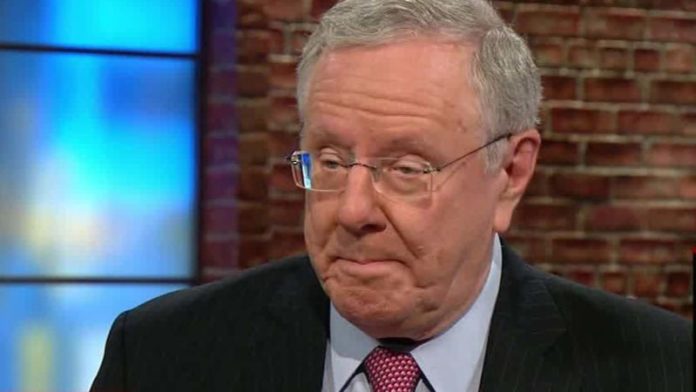Steve Forbes says that “making people poor” to solve inflation will undoubtedly be the end result of the Federal Reserve hiking interest rates amid the nation’s record-high inflation, which will lead to the impending recession.
Rising prices impacting Americans have been caused by multiple factors such as climate change policies that reduce oil production, Russian sanctions, and President Biden’s habit of government overspending.
In a recent interview, when Forbes was asked about President Biden’s attitude towards his failing economic policies, Forbes said, “People wonder what planet he is on.”
The record-high prices have quickly become a leading issue for many American voters in recent months. Consumers see costs surging for numerous products and services, including food and gas. Gas is up more than $2 per gallon from last year, while food prices have soared more than 38% in the same period.
The cost of vehicles has surged more than 48% for consumers, making the average cost of a new car equivalent to about 80% of a year’s salary for the quickly disappearing middle-class.
Homeownership costs are eliminating buyers and resulting in fewer new home purchases as home prices have skyrocketed more than 100% in the last two years. Couple that will rising interest rates, and you will experience a dramatic slowdown in the real estate markets.
Last week, the high inflation rate prompted the Federal Reserve to announce its highest interest rate increase in 28 years.
On Saturday, Forbes said in an interview with conservative news outlet Newsmax that raising interest rates will severely affect consumers.
“Let’s be blunt about it. When they talk about a soft landing or trying to slow the economy down, that means making people poor,” he said.
He went on to say that rather than “punish the American economy” with higher interest rates, the Fed should focus its efforts on stabilizing the value of the dollar.
Forbes anticipated that interest rate hikes would seriously hurt consumers when “mortgage rates are readjusted later this year” and heating prices rise in the winter.
“A big, bad thing is happening. And when heating oil prices come in this winter, when you’re paying twice as much as you were before and you have to heat your home, that’s going to be a disaster,” he said. “So whatever they want to call it, it’s not good.”
Roughly seven out of ten economists anticipate a recession within the coming year.
Americans feel the economic fallout after the inflation hit 8.6% in May, and gas prices surpassed $5 per gallon this month.


